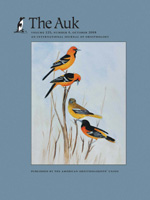The disturbance associated with nest monitoring raises concerns about the validity of the estimated nest success and the well-being of the populations under study. Observer activity may attract or deter predators to or from bird nests, thus decreasing or increasing nest success. Results of previous studies related nest success to frequency of nest visits or estimated survival over rechecking intervals of different length. Such studies usually cannot reveal the underlying mechanism through which predation rate is influenced, because the timing of predation remains unknown. I measured, using data loggers, the exact survival times of 747 nests of 11 songbird species in fragmented woodland in the Czech Republic in 2001–2003 and analyzed the temporal relationship between predation and observer visits. I found only a short-term observer effect that lowered the hazard of predation during 2 h after a visit but did not appreciably affect the overall nest success. The timing of nest visits and the short duration of the effect imply that predators were deterred from the nests directly by the observer's presence, rather than by long-lasting cues (scent trails, damage to vegetation), and that diurnal predators (mainly corvids) responded to observer presence. This effect was consistent across years but differed between species groups. Deterrence of avian predators was profitable for a heterogeneous "warbler" group of species with limited nest-defense ability (model-averaged hazard ratio: 0.38; 95% confidence interval: 0.12–1.25), but it had little effect on thrushes (Turdus spp.; 1.01; 0.28–3.68). I support the view that predation on songbird nests is not increased by repeated observer visits, especially in situations where nest densities and background human disturbance are high.
How to translate text using browser tools
1 October 2008
Nest Monitoring Does Not Increase Nest Predation in Open-Nesting Songbirds: Inference from Continuous Nest-Survival Data
Karel Weidinger
ACCESS THE FULL ARTICLE

The Auk
Vol. 125 • No. 4
October 2008
Vol. 125 • No. 4
October 2008
Cox-Andersen-Gill model
disturbance
nest predators
nest success
observer effect
passerines
survival time analysis




